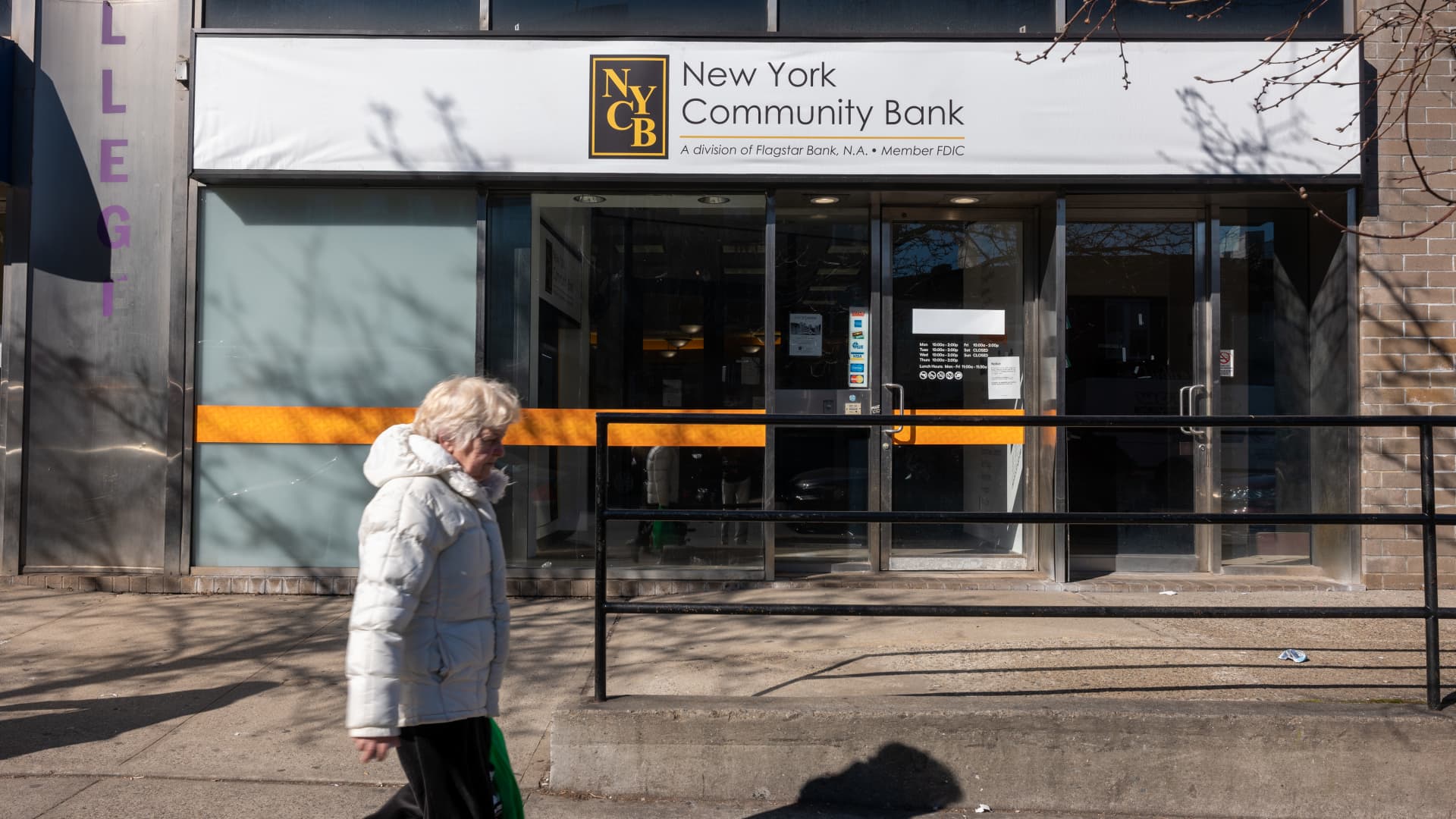NYCB Deposits at Risk: Moody’s Downgrade Raises Concerns

New York Community Bank (NYCB) may face challenges in retaining its deposits following another downgrade by Moody’s Investors Service. This latest rating cut is the second in a month, significantly lowering NYCB’s deposit rating to three levels below investment grade. As analysts tracking the company have noted, this downgrade could trigger contractual obligations from business clients who require an investment grade deposit rating.
The implications of this downgrade are particularly significant for NYCB, which has already been experiencing a steep decline in its stock prices. The bank reported a surprise fourth-quarter loss and higher provisions for loan losses, which negatively impacted investor confidence. In addition, concerns intensified when the bank’s new management identified “material weaknesses” in the review process for its commercial loans. As a result, NYCB’s shares have plummeted by 73% this year, trading at less than $3 per share.
Of primary interest to analysts and investors is the status of NYCB’s deposits. According to the bank’s statement last month, it had approximately $83 billion in deposits as of February 5th. However, this information predates Moody’s downgrades, prompting speculation about potential deposit flight since then.
The Moody’s ratings cuts could have implications for funds in two key areas: NYCB’s “Banking as a Service” business and its mortgage escrow unit. These segments currently hold deposits worth $7.8 billion and between $6 billion and $8 billion, respectively. Citigroup analyst Keith Horowitz highlights concerns about the potential risks to servicing deposits in the case of a downgrade.
During a recent conference call, NYCB’s Chief Financial Officer, John Pinto, confirmed the need to maintain an investment grade status for the bank’s mortgage escrow business. Pinto also acknowledged that deposit levels in the unit fluctuated within the range of $6 billion to $8 billion. Analysts suggest that if there are contractual obligations tied to investment grade ratings, the Moody’s downgrade could trigger further complications.
To mitigate the impact of the downgrade, NYCB could explore alternatives such as raising brokered deposits, issuing new debt, or borrowing from Federal Reserve facilities. However, these options are likely to come at a higher cost, posing additional challenges for the bank.
In summary, NYCB’s recent downgrade by Moody’s has raised concerns about the bank’s ability to retain deposits. As the bank grapples with declining stock prices and potential contractual obligations, it will need to implement strategic measures to navigate these challenges successfully.
To read more finance-related articles, visit Business Today.

